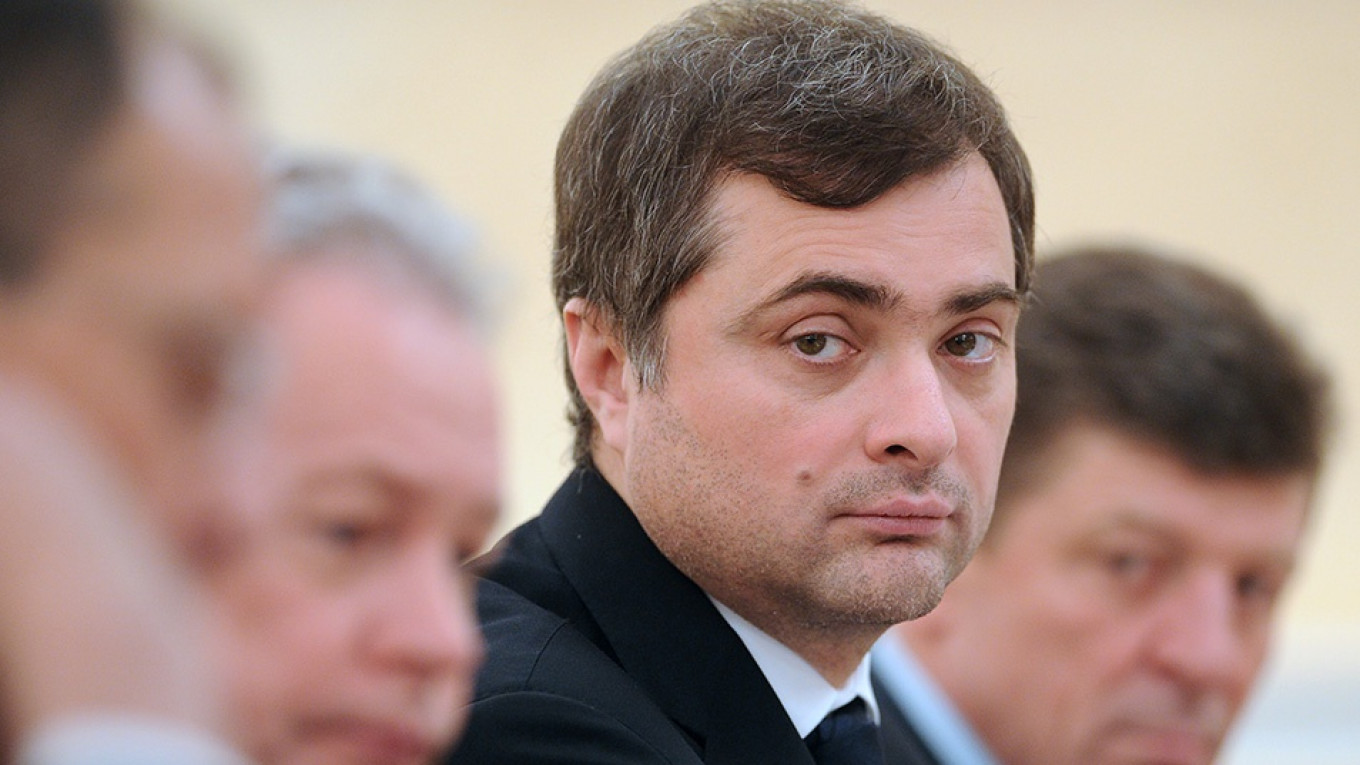In a column last week, presidential aide Vladislav Surkov characterized (LINK) “Putinism” as a “functioning ideology of the everyday, with all its social innovations and productive contradictions.” He also labeled it a “global political lifehack for governing.”
Conversations about Putinism as an ideology and a political doctrine have been going on for a long time now, and have several dimensions. One is the question of legacy and inheritance, in the most direct sense of the word: if President Putin really does leave his post — in 2024 or earlier — it is surely time for us to decide which of his reforms is worth taking into the future.
Here, however, we are really talking about conversations behind closed doors: while Kremlin officials and the president’s friends talk within their own circles about the eternal and the geriatric (for many this today is one and the same), the youngsters at the next table are dispelling fantasies with deliberations about the future — the doctrine we can use, but the ruling style we’ll definitely need to change. But for now this is whimsy, not politics.
Several years ago, when describing Putinism, I tried to formulate the idea of two states in one — a diurnal state and a nocturnal one. The “day” state is a regular Russian state: government, officials, paperwork. Not the best, but not the worst by today’s standards. The “night” state is the state of the security forces and influential Kremlin courtiers. A state in which an aide to the vice president sits in the House of Government, typing out another YUKOS case on a government computer. In which former minister Alexei Ulyukayev ends up in a cell after being set up by one of Putin’s closest advisors.
Today it seems that I was mistaken. There are not two states. There is the state apparatus — a puppet, a complex machine. Its inner logic, hierarchical systems and powers, and its orders of relevance are constantly distorting, changing and being overturned by a player that is external by nature, for the sake of clarity we will call it the “regime.” In this case the regime can pull the puppet by the strings, as well as act independently — in the form of a secret society, a dacha cooperative, an offshore club and so on.
For the Russian state, Putinism is something directly opposed to what in theory it has become accepted to call “Leviathan.” The sovereign or regime in Russia is not sitting inside the head of an enormous mechanical being. It is not at all to be found in the same order of existence as this being.
Putinism is a doctrine of the erosion of statehood as an idea and the destruction of the state as a stable ensemble of people, practices and institutions. In some sense Putinism is repeating the move the Bolsheviks made: having seized power, they ruled not from within this power, but from without, from a secretive headquarters called the Politburo.
It is precisely here that the answer to the question about the success of Putinism can be found. There, where the state says “no” to politics, it finds its sovereignty and solvency. There, where the state's tongue has been pulled out and sent to the conveyor belt of endless rebuilding, it finds its end.
A Russian version of this article was originally published in Vedomosti.
A Message from The Moscow Times:
Dear readers,
We are facing unprecedented challenges. Russia's Prosecutor General's Office has designated The Moscow Times as an "undesirable" organization, criminalizing our work and putting our staff at risk of prosecution. This follows our earlier unjust labeling as a "foreign agent."
These actions are direct attempts to silence independent journalism in Russia. The authorities claim our work "discredits the decisions of the Russian leadership." We see things differently: we strive to provide accurate, unbiased reporting on Russia.
We, the journalists of The Moscow Times, refuse to be silenced. But to continue our work, we need your help.
Your support, no matter how small, makes a world of difference. If you can, please support us monthly starting from just $2. It's quick to set up, and every contribution makes a significant impact.
By supporting The Moscow Times, you're defending open, independent journalism in the face of repression. Thank you for standing with us.
Remind me later.








